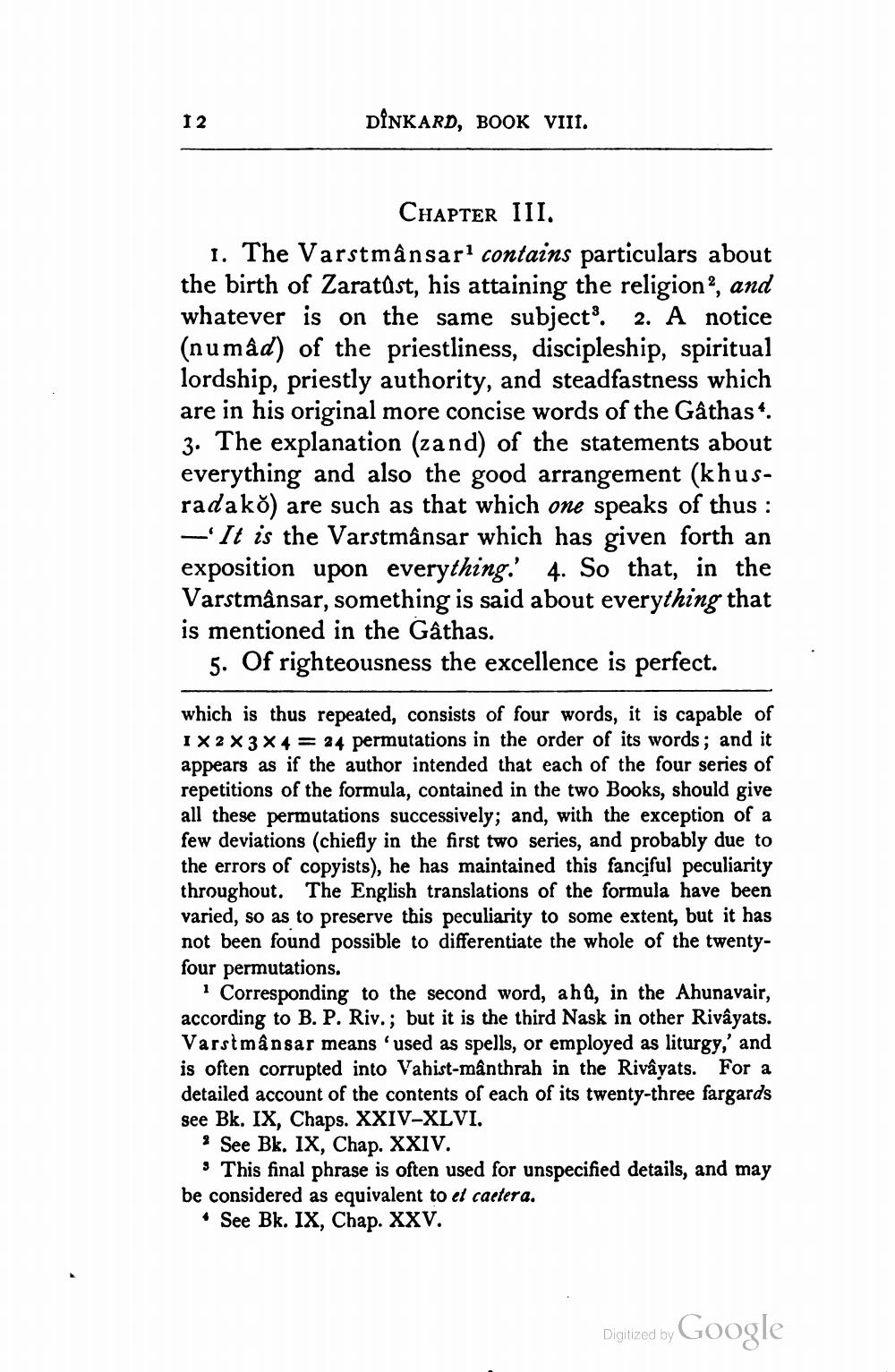________________
12
DİNKARD, BOOK VIII.
CHAPTER III.
1. The Varstmânsar1 contains particulars about the birth of Zaratust, his attaining the religion, and whatever is on the same subject3. 2. A notice (numâd) of the priestliness, discipleship, spiritual lordship, priestly authority, and steadfastness which are in his original more concise words of the Gâthas*. 3. The explanation (zand) of the statements about everything and also the good arrangement (khusradako) are such as that which one speaks of thus: -It is the Varstmânsar which has given forth an exposition upon everything. 4. So that, in the Varstmânsar, something is said about everything that is mentioned in the Gâthas.
5. Of righteousness the excellence is perfect.
which is thus repeated, consists of four words, it is capable of IX2 X3 X4 = 24 permutations in the order of its words; and it appears as if the author intended that each of the four series of repetitions of the formula, contained in the two Books, should give all these permutations successively; and, with the exception of a few deviations (chiefly in the first two series, and probably due to the errors of copyists), he has maintained this fanciful peculiarity throughout. The English translations of the formula have been varied, so as to preserve this peculiarity to some extent, but it has not been found possible to differentiate the whole of the twentyfour permutations.
1 Corresponding to the second word, ahû, in the Ahunavair, according to B. P. Riv.; but it is the third Nask in other Rivâyats. Varstmânsar means 'used as spells, or employed as liturgy,' and is often corrupted into Vahist-mânthrah in the Rivâyats. For a detailed account of the contents of each of its twenty-three fargards see Bk. IX, Chaps. XXIV-XLVI.
2 See Bk. IX, Chap. XXIV.
› This final phrase is often used for unspecified details, and may be considered as equivalent to el caetera.
* See Bk. IX, Chap. XXV.
Digitized by
Google




